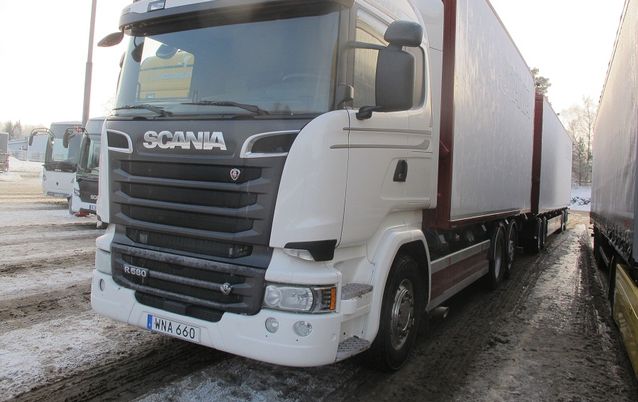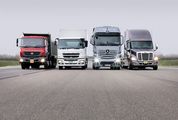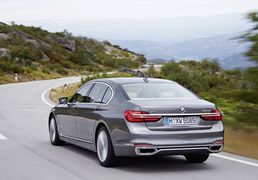SA CURRENTLY has a fuel standard of Euro 2, far behind the Euro 5 and 6 standards of Europe. A couple of weeks ago, I drove a 60-tonne truck at Scania’s test facility in Sweden that ran on hydrated vegetable oil (HVO). This country is in danger of falling behind when it comes to the latest environmental efficiency measures.
"If we don’t choose our destiny, then the global economy will do it for us," says Anthony King, key account manager for alternative fuels at Scania SA.
King’s warning comes in light of continued delays in launching cleaner fuels in SA. The delay is frustrating for King and his colleagues at other truck makers. Manufacturing for low grade fuel economies such as SA is expensive. It is also preventing SA from moving forward in meeting its climate change commitments.
According to Richard Worthington, manager: climate change programme at the World Wildlife Fund SA, the country has committed to a ceiling of 614-million tonnes of CO2 emissions between 2025 and 2030. Currently, SA is emitting abut 550-million tonnes, but when the new power stations of Medupi and Kusile go online, we will hit and possible pass the emission ceiling. Our reliance on fossil fuels is making it difficult to reduce emissions in any meaningful way over the medium term.
To put this into perspective even further, China’s per capita CO2 emissions currently stands at 6.18-tonnes. SA’s figure is 9.18-tonnes, one of the highest figures in the world.
With emissions come medical problems. According to the World Health Organisation, 3.5-million people die every year worldwide from respiratory illnesses. Exponential growth in African cities will require greener fuels, according to King.
"The government knows what needs to be done," says King, but he states that it is dragging its feet on the issue.
Fortunately private enterprise is taking the initiative, including the automotive and truck industries, which continue to collaborate with the government in finding solutions.
"We are driving sustainability," says King.
"There are fuels we can use now in the EU5 and 6 realm such as bioethanol. Where we have commercial biofuel solutions, we are looking at projects."
An example of this is a Scania bus operating in Cape Town that runs on sugar beet from Lichtenberg. According to King, this bus boasts a reduction of 78% in CO2. Of course, transporting the fuel from Lichtenberg is not ideal, but if a clever entrepreneur was to get involved then it is possible to make biofuel from the waste of the wine industry. It is already being done in France and would be a perfect solution for the wine-rich Cape.
King says that Scania’s approach is to look at what is commonly referred to as the "well to wheel cycle". Essentially it means the real input required to produce fuel or electricity. For example, are fossil fuels being used to produce the electricity for electric vehicles?
As such, he says the company is putting green pegs in the ground on a regional basis, leaving the big fuel companies and government to focus on national solutions.
One of these pegs is in the Free State, where Unitrans will begin operating fully Euro 6 compliant gas buses next month. These buses will utilise biogas produced by Renergen Energy, which is based in the province, ensuring that the fuel is close to the buses that need it.
The City of Tshwane announced last year that it will put 40 Mercedes-Benz gas powered buses into operation in its Bus Rapid Transit fleet this year and the City of Joburg is also looking at gas buses.
And it is no longer an issue relating to the cost either.
"We can position the price of an ethanol vehicle at the same point as a regular diesel vehicle," says King.
One litre of diesel fuel would have to be replaced by 1.7l of ethanol but King believes transport operators can take what they are currently saving due to the lower fuel price and invest it into sustainable solutions.
Many operators are, however, sticking to the traditional route but choosing to invest in the latest technology from overseas. King points out that while the industry standard for fuel might be Euro 2 Scania, along with other truck companies, is operating vehicles of a Euro 4 standard. Some are even higher, with operators choosing to import their own fuel.
"For us at Scania, it is not about holding our cards close to our chest. It’s about showing the world who we are," says King.
He is firmly of the opinion that more action needs to be taken and is actively lobbing the Department of Trade and Industry, the Department of Energy as well as the South African Bureau of Standards.
"I see a lot of ubuntu, but not a lot of do-do-to," he says.
-

This ethanol powered Scania bus is in operation in Cape Town. Picture: SCANIA SA
-

Do not expect to be able to fill up with hydrated vegetable oil (HVO) in SA anytime soon. Pictures: MARK SMYTH, SCANIA
-

This Scania R580 in Sweden runs on biodiesel. Pictures: MARK SMYTH, SCANIA
SA CURRENTLY has a fuel standard of Euro 2, far behind the Euro 5 and 6 standards of Europe. A couple of weeks ago, I drove a 60-tonne truck at Scania’s test facility in Sweden that ran on hydrated vegetable oil (HVO). This country is in danger of falling behind when it comes to the latest environmental efficiency measures.
"If we don’t choose our destiny, then the global economy will do it for us," says Anthony King, key account manager for alternative fuels at Scania SA.
King’s warning comes in light of continued delays in launching cleaner fuels in SA. The delay is frustrating for King and his colleagues at other truck makers. Manufacturing for low grade fuel economies such as SA is expensive. It is also preventing SA from moving forward in meeting its climate change commitments.
According to Richard Worthington, manager: climate change programme at the World Wildlife Fund SA, the country has committed to a ceiling of 614-million tonnes of CO2 emissions between 2025 and 2030. Currently, SA is emitting abut 550-million tonnes, but when the new power stations of Medupi and Kusile go online, we will hit and possible pass the emission ceiling. Our reliance on fossil fuels is making it difficult to reduce emissions in any meaningful way over the medium term.
To put this into perspective even further, China’s per capita CO2 emissions currently stands at 6.18-tonnes. SA’s figure is 9.18-tonnes, one of the highest figures in the world.
With emissions come medical problems. According to the World Health Organisation, 3.5-million people die every year worldwide from respiratory illnesses. Exponential growth in African cities will require greener fuels, according to King.
"The government knows what needs to be done," says King, but he states that it is dragging its feet on the issue.
Fortunately private enterprise is taking the initiative, including the automotive and truck industries, which continue to collaborate with the government in finding solutions.
"We are driving sustainability," says King.
"There are fuels we can use now in the EU5 and 6 realm such as bioethanol. Where we have commercial biofuel solutions, we are looking at projects."
An example of this is a Scania bus operating in Cape Town that runs on sugar beet from Lichtenberg. According to King, this bus boasts a reduction of 78% in CO2. Of course, transporting the fuel from Lichtenberg is not ideal, but if a clever entrepreneur was to get involved then it is possible to make biofuel from the waste of the wine industry. It is already being done in France and would be a perfect solution for the wine-rich Cape.
King says that Scania’s approach is to look at what is commonly referred to as the "well to wheel cycle". Essentially it means the real input required to produce fuel or electricity. For example, are fossil fuels being used to produce the electricity for electric vehicles?
As such, he says the company is putting green pegs in the ground on a regional basis, leaving the big fuel companies and government to focus on national solutions.
One of these pegs is in the Free State, where Unitrans will begin operating fully Euro 6 compliant gas buses next month. These buses will utilise biogas produced by Renergen Energy, which is based in the province, ensuring that the fuel is close to the buses that need it.
The City of Tshwane announced last year that it will put 40 Mercedes-Benz gas powered buses into operation in its Bus Rapid Transit fleet this year and the City of Joburg is also looking at gas buses.
And it is no longer an issue relating to the cost either.
"We can position the price of an ethanol vehicle at the same point as a regular diesel vehicle," says King.
One litre of diesel fuel would have to be replaced by 1.7l of ethanol but King believes transport operators can take what they are currently saving due to the lower fuel price and invest it into sustainable solutions.
Many operators are, however, sticking to the traditional route but choosing to invest in the latest technology from overseas. King points out that while the industry standard for fuel might be Euro 2 Scania, along with other truck companies, is operating vehicles of a Euro 4 standard. Some are even higher, with operators choosing to import their own fuel.
"For us at Scania, it is not about holding our cards close to our chest. It’s about showing the world who we are," says King.
He is firmly of the opinion that more action needs to be taken and is actively lobbing the Department of Trade and Industry, the Department of Energy as well as the South African Bureau of Standards.
"I see a lot of ubuntu, but not a lot of do-do-to," he says.



























Change: 0.88%
Change: 1.00%
Change: 0.81%
Change: 0.87%
Change: 1.61%
Data supplied by Profile Data
Change: -2.39%
Change: -1.60%
Change: 0.88%
Change: 0.00%
Change: -1.23%
Data supplied by Profile Data
Change: 0.09%
Change: -0.12%
Change: -0.55%
Change: -0.07%
Change: -0.45%
Data supplied by Profile Data
Change: -0.28%
Change: -0.73%
Change: -0.44%
Change: -0.19%
Change: 2.01%
Data supplied by Profile Data